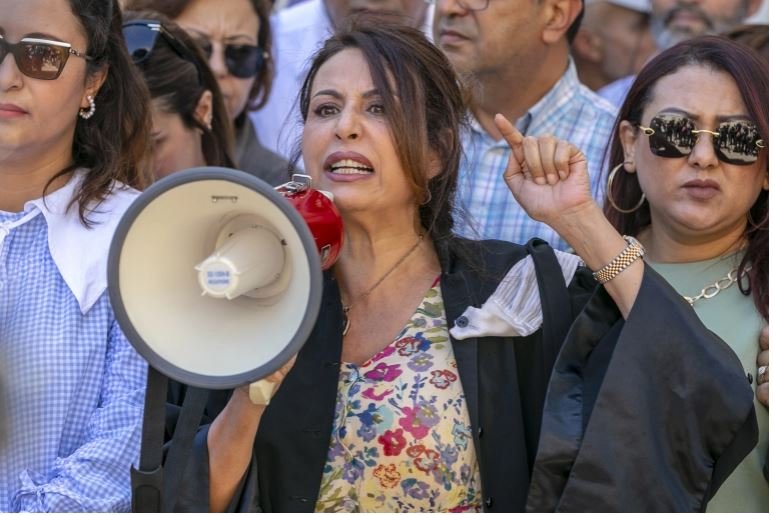Tunisian judges have extended their national strike for a third week in protest against what they call President Kais Saied’s “interference” in the judiciary, as the president has tightened his grip on power since freezing parliament last July.
Saied dismissed 57 judges on June 1, accusing them of corruption and protecting “terrorists” – charges the Tunisian Judges’ Association said were mostly politically motivated.
Judges suspended their work in courts on June 4 and said the president’s decisions were designed to control the judiciary and use it against his political opponents.
“The judges decided unanimously to extend the strike for a third week … to hold a day of rage in which the judges will protest in the streets in their uniforms,” Mourad Massoudi, the head of the Young Judges Association, told Reuters news agency.
He said members of judges had decided to stage a hunger strike against the decision to dismiss them. Another judge, Hamadi Rahmani, confirmed. Four judges’ unions called for strike in the wake of the mass sackings on June 1.
‘Interfering in the judicial process’
Saied’s move heightened accusations at home and abroad that he has consolidated one-man rule after assuming executive powers last summer. He subsequently set aside the 2014 democratic constitution to rule by decree and dismissed the elected parliament.
He says the decisions were needed to cleanse the judiciary of rampant corruption and that he does not aim to control the judiciary.
In February, Saied dissolved the Supreme Judicial Council, which had acted as the main guarantor of judicial independence since Tunisia’s 2011 revolution.
At the time, Tunisia’s Judges Association called for a two-day strike for all courts in the country in protest against Saied’s move to dissolve the top judicial watchdog, amid growing fears of a return to authoritarian rule.
Later in February, Saied issued a decree establishing a new provisional judicial council, granting himself additional powers to control the country’s top judicial organisation.
Saied claims that his actions since July 25, 2021, have been necessary to save Tunisia from the country’s political elites. Initially, his moves appeared to win public support, but public anger is growing amid high inflation and unemployment, and declining public services.
Meanwhile on Sunday, hundreds of people demonstrated in Tunis in a second day of protest against a constitutional referendum called by Saied that his opponents say would cement his hold on power.
The demonstration was organised by the Salvation Front, a coalition including the moderate Islamist Ennahda, the largest party in a parliament that Saied dissolved in March.
It followed a similar protest on Saturday called by the Free Constitutional Party over the referendum, and a strike on Thursday by a powerful labour union over government economic reform plans, which brought much of the county to a standstill.
Al Jazeera spoke to Elizia Volkmann in Tunis, who said that protests are becoming more frequent in the north African country.
These protests have going on pretty much on a sort of a monthly basis since Saied’s power grab, Volkmann said, adding that protests have been increasing over the past week.
“There is a lot more opposition energy fermenting but we are not seeing this with the youth,” she said.
The president’s supporters say he is standing up to elite forces whose bungling and corruption have condemned Tunisia to a decade of political paralysis and economic stagnation.

